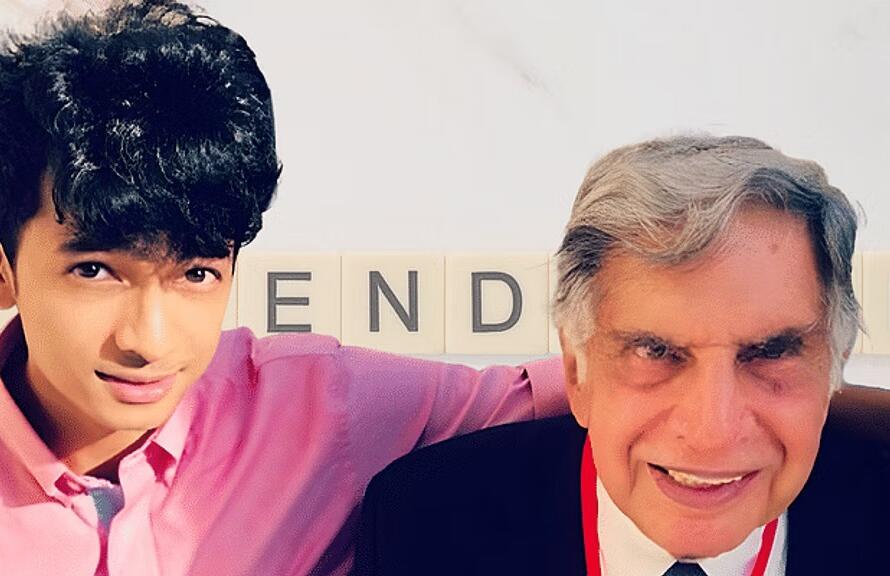Date: December 23, 2023 Narendra Modi, India’s charismatic and controversial Prime Minister, sat down with the Financial Times for an exclusive interview at his official residence in New Delhi, reflecting on a year that has kept India in the global spotlight.
Against the backdrop of a nation on the brink of an economic and geopolitical take-off, Modi exuded confidence and a vision for the future.
Narendra Modi: Charting India’s Course Amidst Global Recognition and Domestic Concerns
Modi, whose official residence was renamed Lok Kalyan Marg, translating to “People’s Welfare Street,” has been a polarizing figure during his nearly ten years in office. His leadership has brought India to the forefront of international affairs, surpassing China in population and gaining recognition as an alternative investment destination. —- Narendra Modi: Charting India’s Course Amidst Global Recognition and Domestic Concerns

As he gears up for a third term in office, his party, the Bharatiya Janata Party (BJP), stands as the favorite in upcoming elections.
In the interview, Modi emphasized the changing aspirations of the Indian people, noting that the nation is on the “cusp of a take-off.” Dressed in traditional attire, he spoke about the solid changes in the common man’s life and expressed confidence in his party’s ability to expedite the nation’s flight to progress.
Recent victories in state elections, viewed as a precursor to the 2024 polls, have buoyed the BJP’s spirits. Modi’s supporters point to his economic reforms, global statesmanship, and the elevation of Hinduism in public life as key achievements. However, his opponents, led by the Indian National Congress and figures like Rahul Gandhi, have formed a united front under the acronym I.N.D.I.A.
Their mission is to “safeguard democracy and the constitution,” alleging an assault on the secular principles laid out by the country’s founders.
Critics accuse Modi’s government of cracking down on rivals, limiting civil society, and discriminating against the large Muslim minority.
Concerns loom that a potential third term victory, especially with a substantial majority, could lead to a shift away from secular values. Some fear that Modi might amend the constitution to establish India as an explicitly Hindu republic.
These claims of democratic backsliding are vehemently rejected by the BJP, setting the stage for a heated political landscape as the nation heads toward the 2024 polls.

The global community, which has increasingly looked to India as a key geopolitical and economic partner, watches with interest and concern, aware that the trajectory of the world’s largest democracy holds implications beyond its borders.
As India stands at the crossroads of political choices, the nation’s future, whether under Modi’s continued leadership or a potential shift, will undoubtedly shape the geopolitical landscape in the years to come.
In a rare and candid interview, Prime Minister Narendra Modi addressed a range of pressing issues, providing insights into his government’s stance on topics such as the status of India’s Muslim minority, diplomatic relations, and constitutional amendments. Brushing aside criticisms of his government’s economic and democratic record, Modi emphasized that the concerns raised are often the product of a chattering class disconnected from the transformative changes he claims to be implementing in India.
Responding to allegations and concerns over the health of Indian democracy, Modi stated, ‘Our critics are entitled to their opinions and the freedom to express them. However, there is a fundamental issue with such allegations, which often appear as criticisms. These claims not only insult the intelligence of the Indian people but also underestimate their deep commitment to values like diversity and democracy.’ He further dismissed any talk of amending the constitution as meaningless, asserting that the most transformative steps undertaken by his government have been realized through public participation without constitutional amendments.
Highlighting his government’s achievements, Modi pointed to initiatives such as the ‘Clean India’ nationwide toilet-building campaign and the digital public infrastructure push that brought nearly 1 billion people online. He stressed that these initiatives were undertaken without amending the constitution, emphasizing the role of public participation in their success.

Modi’s foreign policy approach was also discussed, describing it as a mix-and-match strategy. He emphasized that India’s foremost guiding principle in foreign affairs is its national interest, allowing engagement with various nations while respecting mutual interests and acknowledging the complexities of contemporary geopolitics.
Modi acknowledged the interconnected and interdependent nature of the world, outlining India’s position in a multipolar and multilateral world as a ‘sweet spot,’ according to an anonymous senior government official.
Despite recent allegations of an Indian government official directing a plot to assassinate a prominent American Sikh separatist leader on US soil, Modi described India’s relations with the US as on an ‘upward trajectory.’ He stressed that India’s foreign policy is rooted in its national interest and flexibility, adapting to the complexities of the global landscape.
As Modi navigates domestic and international challenges, his interview sheds light on his vision for India and his government’s approach to addressing various concerns, offering a glimpse into the complexities of the country’s political and diplomatic landscape.
In the interview with the Financial Times, Prime Minister Narendra Modi emphasized the strengthening and deepening of the India-US relationship. According to Modi, the current state of the relationship is broader in engagement, deeper in understanding, and warmer in friendship than ever before.
He downplayed a question about recent relaxation of tensions between the US and China, stating that such matters are best addressed by the people and government of America and China.
Regarding the Israel-Hamas conflict, Modi mentioned India’s support for the delivery of humanitarian aid to Gaza while reiterating the country’s backing for a two-state solution.
Despite the historically strong support for the Palestinian cause, India, under Modi’s leadership, has developed closer ties with Israel, marked by technology collaboration and shared right-wing nationalist views.
The article also delves into the concept of India emerging as an economic alternative to China. Modi has articulated a vision of India becoming a $5 trillion economy, entering what he terms an “age of nectar” or golden age.
This narrative gains prominence amidst growing tensions between Washington and Beijing, prompting western democracies to explore alternative partners.
In his Independence Day speech, Modi pledged to transform India into a developed country by 2047, coinciding with its 100th anniversary. However, some economists caution that achieving this goal would require faster economic growth than the current 6-7 percent annual rate.
While some Indians express excitement about the prospect, others harbor concerns about the challenges of fulfilling such ambitious promises.





